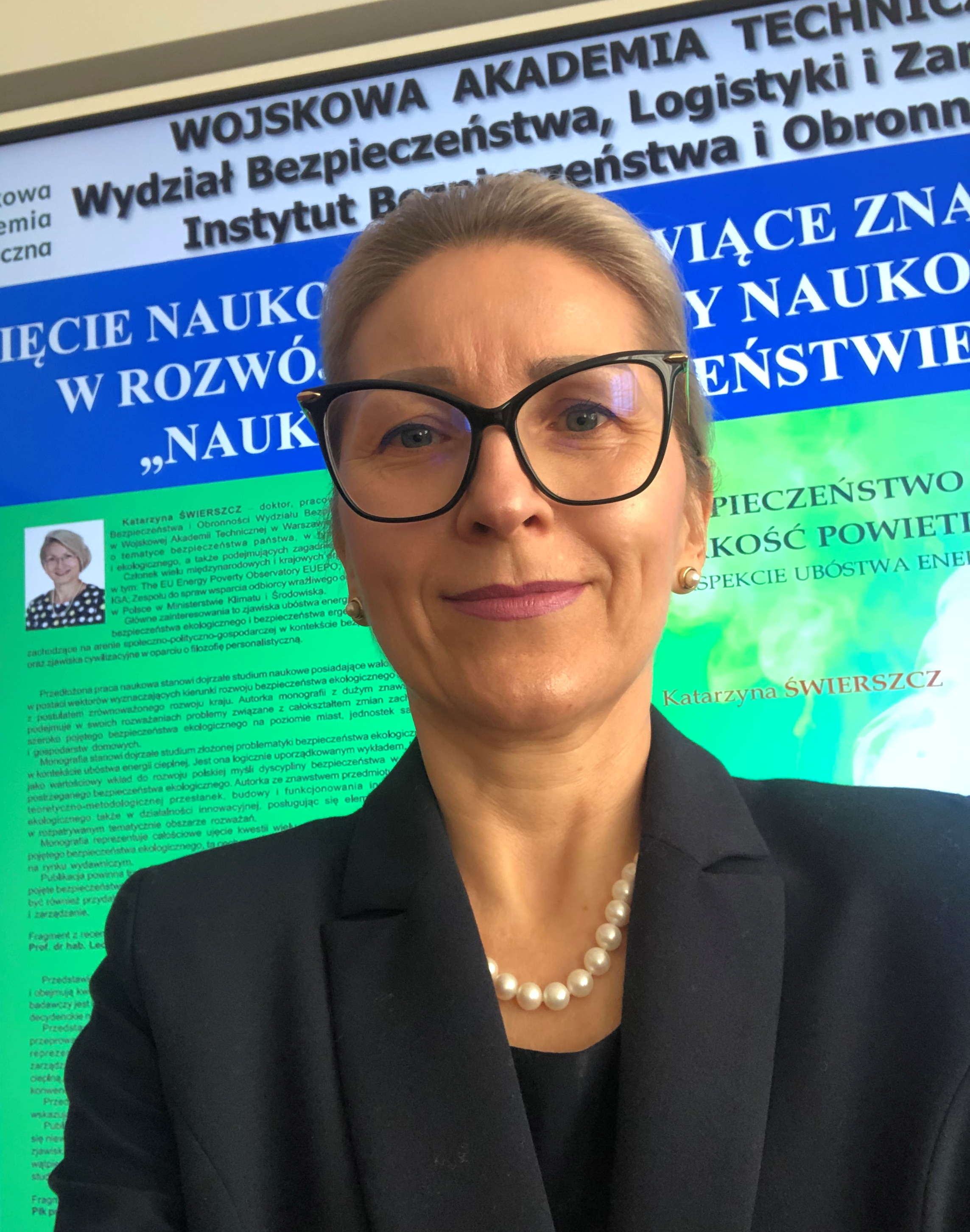Katarzyna Świerszcz
Military University of Technology in Warsaw
Poland
I am a postdoctoral degree holder, professor at the Military University of Technology (Faculty of Security, Logistics and Management) in Warsaw, Poland.
For over a dozen years, I have been conducting research in the area of ecological security (in the aspect of air, soil, water, food pollution) and related energy security (in the aspect of thermal energy poverty)
I am the author of several independent books:
1. Świerszcz K., "Ecological security and air quality in the aspect of thermal energy poverty in Poland", WAT, Warsaw 2024, pp. 643, ISBN 978-83-7938-420-4.
2. Świerszcz K., The state of thermal energy security in Poland in the context of Europe, WAT, Warsaw 2021, pp. 314, ISBN: 978-83-7938-338-2.
3. Świerszcz K., Heat poverty as a measure of local energy security, WAT, Warsaw 2020, pp. 137, ISBN 978-83-7938-251-4.
4. Świerszcz K., Perception of energy security in the context of counteracting energy poverty in the local community using geothermal resources in the Wiśniowa Commune, WAT, Warsaw 2019, pp. 195, ISBN: 978-83-7938-217-0.
I am also the author of over 100 articles that are indexed by Scopus or Web of Science. I am a member of international reviewers of many journals indexed by Web of Science and Scopus and a member of international associations and organizations, such as:
1. Member of the Team for Supporting Vulnerable Consumers and Reducing Energy Poverty in Poland, at the Ministry of Climate and Environment. – since 2021.
2. Member of the EU Energy Poverty Observatory (EUEPO), since 2018.
3. Member of the International Geothermal Association (IGA), Member ID: 48488797, since 2017.
4. Member of the Polish Geothermal Association (PSG), since 2017.
5. Member of the Polish Geothermal Association (PGA), since 2016
I am currently participating in the implementation of the project of an autonomous, intelligent and zero-emission heating and domestic hot water supply system for a modular, low-emission railway station. – from 21.12.2022 to 2031. The project is implemented by a consortium consisting of 76 European Union entities and is managed directly by the European Commission, as the so-called European Rail Joint Undertaking, codename of the Rail4EARTH Project.

